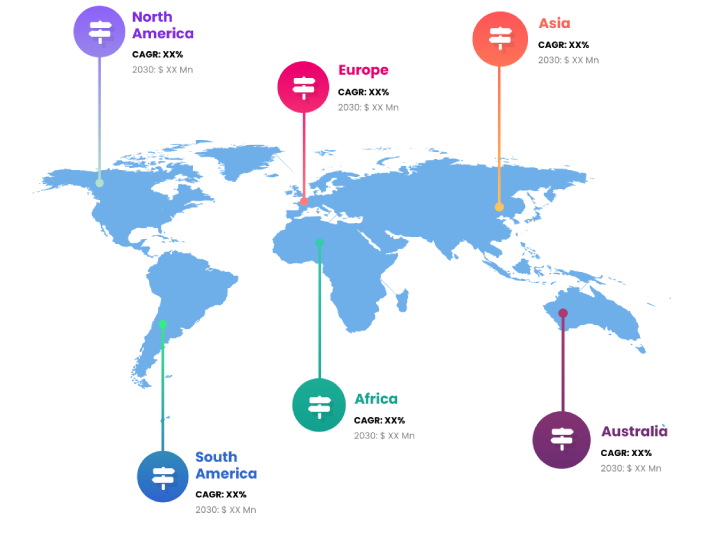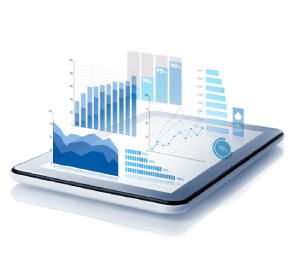Nano biosensors are cutting-edge nanobiotechnology-based devices that are sensitive, well-designed, and non-invasive. Real-time reaction signals produced by nano biosensors are simple to gather and examine. The nano biosensors use a variety of nanomaterials, including nanotubes, nanowires, nanoparticles, nanocrystals, and nanocomposites. Determining if an ecosystem has enough natural resources, such as healthy soil and accessible ground water, is one use for nano biosensors. Farmers can monitor and control the regional soil conditions with the use of this light-weight, portable equipment for the agricultural industry. Nano biosensors have been used to analyse soil fertility, pH, moisture content, mineral concentrations, and pest identification prior to the onset of illnesses.
In excess of 8.5 billion people are expected to live on the planet by the year 2050, and this population growth will continue exponentially until it reaches 9.8 billion people, creating difficulties for the provision of food and natural resources. Other key problems include reduced land space, a scarcity of food and crops, competition for natural resources, and an emphasis on boosting crop yield under unfavourable environmental conditions. Additionally, the contamination of food with bacteria during storage and processing is another problem that is raising concerns across the globe. It is critically important to develop new sustainable approaches and/or procedures in order to boost the effectiveness of natural resources, plant hormones, a range of diseases, herbicides, fertilisers, and metal ions used in the production of agricultural and food items. Recent advancements in the agri-food business have been accomplished using enhanced functional materials made feasible by nanotechnology.
Environmental monitoring is a global issue because of the tight connection between environmental contamination and human health. To identify and track the presence of pollutants in natural water bodies—such as pesticides, poisons, microorganisms, and drug residues—many analytical techniques and methodologies have been developed. Real-time measurements of contaminants in the field are the most current trend in contemporary analysis. For this end, biosensors have been deployed as quick and inexpensive analytical procedures. The most versatile and easily transportable biosensors are those that measure impedance. These sensors work by applying a low-amplitude alternating current voltage to the sensor electrode and measuring the in-/out-of-phase current response as a function of frequency. The in-/out-of-phase current response is then combined with a biorecognition component on the sensing electrodes that can bind to the target, changing the sensor's electrical parameters.

Report Coverage
Global Nano Biosensors research report categorizes the market for global based on various segments and regions, forecasts revenue growth, and analyzes trends in each submarket. Global Nano Biosensors report analyses the key growth drivers, opportunities, and challenges influencing the global market. Recent market developments and Nano Biosensors competitive strategies such as expansion, product launch and development, partnership, merger, and acquisition have been included to draw the competitive landscape in the market. The report strategically identifies and profiles the key Nano Biosensors market players and analyses their core competencies in each global market sub-segments.
| REPORT ATTRIBUTES | DETAILS |
|---|---|
| Study Period | 2017-2030 |
| Base Year | 2020 |
| Forecast Period | 2022-2030 |
| Historical Period | 2017-2019 |
| Unit | Value (USD Billion) |
| Key Companies Profiled | Abbott, Roche, Medtronic, Bio-Rad Laboratories, Inc, DuPont, Biosensors International Group, Ltd, Cytiva (UK), Dexcom, Inc, Lifescan IP Holdings, LLC, Masimo, Nova Biomedical, Universal Biosensors, Others |
| Segments Covered | • By Product |
| Customization Scope | Free report customization (equivalent to up to 3 analyst working days) with purchase. Addition or alteration to country, regional & segment scope |
Key Points Covered in the Report
- Market Revenue of Nano Biosensors Market from 2021 to 2030.
- Market Forecast for Nano Biosensors Market from 2021 to 2030.
- Regional Market Share and Revenue from 2021 to 2030.
- Country Market share within region from 2021 to 2030.
- Key Type and Application Revenue and forecast.
- Company Market Share Analysis, Nano Biosensors competitive scenario, ranking, and detailed company
profiles. - Market driver, restraints, and detailed COVID-19 impact on Nano Biosensors
Market
Competitive Environment:
The research provides an accurate study of the major organisations and companies operating in the global Nano Biosensors market, along with a comparative evaluation based on their product portfolios, corporate summaries, geographic reach, business plans, Nano Biosensors market shares in specific segments, and SWOT analyses. A detailed analysis of the firms' recent news and developments, such as product development, inventions, joint ventures, partnerships, mergers and acquisitions, strategic alliances, and other activities, is also included in the study. This makes it possible to assess the level of market competition as a whole.
List of Major Market Participants
Abbott, Roche, Medtronic, Bio-Rad Laboratories, Inc, DuPont, Biosensors International Group, Ltd, Cytiva (UK), Dexcom, Inc, Lifescan IP Holdings, LLC, Masimo, Nova Biomedical, Universal Biosensors, Others
Primary Target Market
- Market Players of Nano Biosensors
- Investors
- End-users
- Government Authorities
- Consulting And Research Firm
- Venture capitalists
- Third-party knowledge providers
- Value-Added Resellers (VARs)
Market Segment:
This study forecasts global, regional, and country revenue from 2019 to 2030. Spherical Insights has segmented the global Nano Biosensors market based on the below-mentioned segments:
Global Nano Biosensors Market, By Type
- Nanoparticle-Based Sensors
- Nanotube-Based Sensors
- Nanowire Based Sensors
Global Nano Biosensors market, By Product
- Wearable Biosensors
- Non-wearable Biosensors
Global Nano Biosensors Market, By Vertical
- Healthcare
- Consumer Electronics
- Food & Beverage
- Aerospace & Defense
- Others
Global Nano Biosensors market, Regional Analysis
- Europe: Germany, Uk, France, Italy, Spain, Russia, Rest of Europe
- The Asia Pacific: China,Japan,India,South Korea,Australia,Rest of Asia Pacific
- South America: Brazil, Argentina, Rest of South America
- Middle East & Africa: UAE, Saudi Arabia, Qatar, South Africa, Rest of Middle East & Africa
You will get in-depth and extensive nano biosensors market market research and competitor analysis for your business to help you develop more profound insights into the nano biosensors market Market.
Through INFINITIVE Data Expert is a professional Market Research services, I will identify the nano biosensors market market size, demand & opportunities, growth rate, and target audience with a comprehensive analysis of your competitors.



